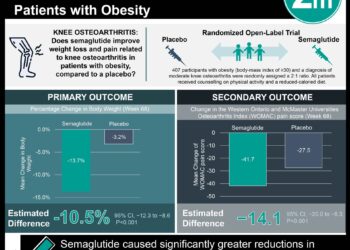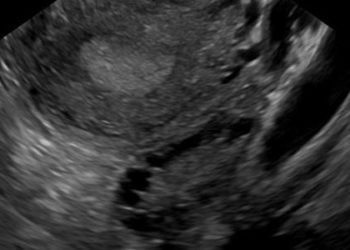Frequent, low-dose weight loss strategy effective in children
1. Children counseled using a low-dose, higher frequency strategy ate more fruit and vegetables and had more active minutes than those counseled using typical low frequency, high-dose methods.
2. Compared to usual care, a strategy using frequent, low-dose support over a 2-year period was significantly more effective at reducing BMI among mild to moderately overweight children.
Evidence Rating Level: 1 (Excellent)
Study Rundown: Childhood obesity is an alarmingly prevalent issue. Making headway in developing effective, sustainable solutions for reducing excess weight in children is critical to improving long-term health consequences as the pediatric population grows into adulthood. The study authors suggested a multidisciplinary approach in achieving this goal. Most current interventions have been aimed at providing counseling in intensive, weekly sessions for a short period of time. However, in this study, authors attempt to determine whether less intensive but more tailored counseling over a longer period of time is more effective than the current strategy. Overweight patients were randomly assigned to usual care (UC) consisting of intensive, short term counseling or the tailored package (TP), consisting of less frequent, long term, personally-tailored counseling. After 2 years, patients in the TP group had a significantly lower BMI, ate more fruits and vegetables, and were more physically active than children in the UC group. As such, the authors concluded that a less intensive strategy involving infrequent but personally tailored visits over a longer period of time may be more effective at long term weight reduction among overweight and obese children. While this study potentially uncovers a more effective intervention in this population, it is limited by the subjectivity of some outcome measurement tools.
Click to read the study, published today in Pediatrics
Relevant Reading: Interventions for treating obesity in children
In-Depth [randomized-controlled trial]: This study recruited 206 overweight children ages 4 to 8 years (mean 6.5 years, 45% male) from 9 general practices and several institution-related clinics. Children with BMI >85th percentile were considered overweight or obese. Children were randomized into the UC or TP groups. UC groups met with a researcher at baseline for 30 to 45 minutes and also received general resources and advice for weight loss. A follow-up appointment occurred at 6 months, lasting 15 to 30 minutes, during which parental questions could be answered, resulting in a total contact time of 45 to 75 minutes over the 2 year study period. The TP group began with a multidisciplinary session and used a baseline report to tailor interventions in monthly sessions over 2 years, totalling in approximately 6 to 7 hours of counseling time. After 2 years, the children in the TP group had a significantly lower BMI (difference -0.34, 95% CI -0.65 to -0.03) and waist circumference (-1.5cm, 95% CI -2.5 to -0.5) compared to the UC group. The TP group also reported significantly higher fruit and vegetable intake scores and increased activity based on objective accelerometer measures.
Image: PD
©2015 2 Minute Medicine, Inc. All rights reserved. No works may be reproduced without expressed written consent from 2 Minute Medicine, Inc. Inquire about licensing here. No article should be construed as medical advice and is not intended as such by the authors or by 2 Minute Medicine, Inc.






